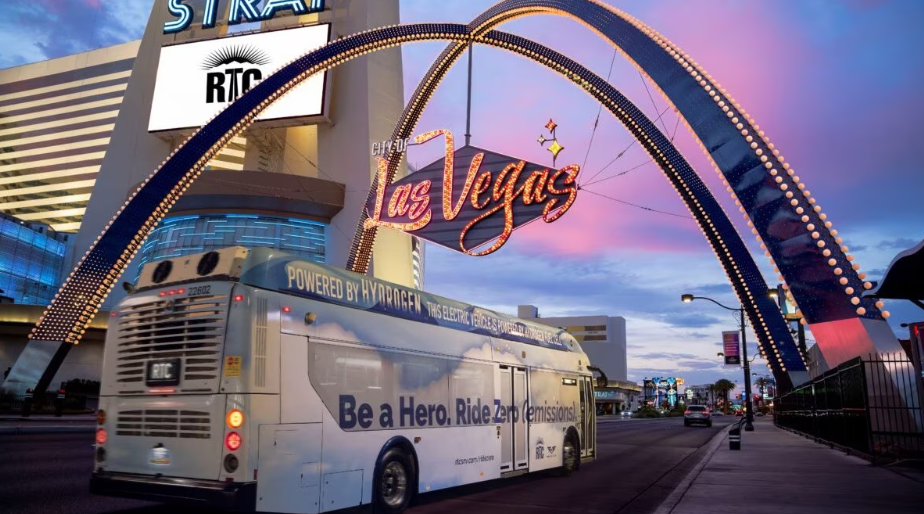
The RTC introduced two hydrogen fuel cell electric buses to its fleet on Thursday, Aug. 17.
According to a media release, this technology is the first of its kind in Nevada, and the buses are the first hydrogen fuel cell electric buses to operate in the state. The buses were funded with a $3.8-million Low or No Emission Grant from the U.S. Department of Transportation. The grant also provides funding to train staff to maintain and operate the new technology.
“We are extremely grateful to our federal delegation for securing funding for these two hydrogen fuel cell electric buses,” said RTC CEO MJ Maynard. “We have long committed to investment in innovative transit technology to reduce our emissions footprint here in Southern Nevada. This technology, which is new to Southern Nevada, helps address our sustainability goal, including moving toward a zero-emissions fleet.”
According to RTC, hydrogen fuel cell technology has several advantages over other power sources:
It’s renewable and readily available. Hydrogen is the most abundant element in the universe.
It’s clean and supports zero-carbon energy strategies with no adverse environmental impact, almost zero emissions, and reduces carbon footprints. Hydrogen fuel cells do not release greenhouse gases.
It’s more powerful and energy efficient than fossil fuels.
It’s quiet and smooth. Hydrogen fuel cell buses operate with little to no noise and accelerate smoothly, enhancing the customer experience.
It charges quickly. Hydrogen fuel cells can be recharged in under fifteen minutes as compared to standard electric vehicles, which may take longer.
It has longer usage times. A hydrogen vehicle has the same range as those that use fossil fuels and is far superior to current electric vehicles.
Additional information on these new buses can be found on the RTC website.